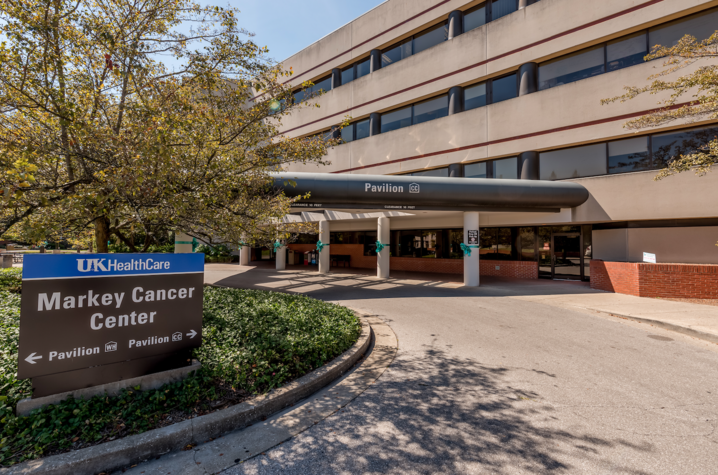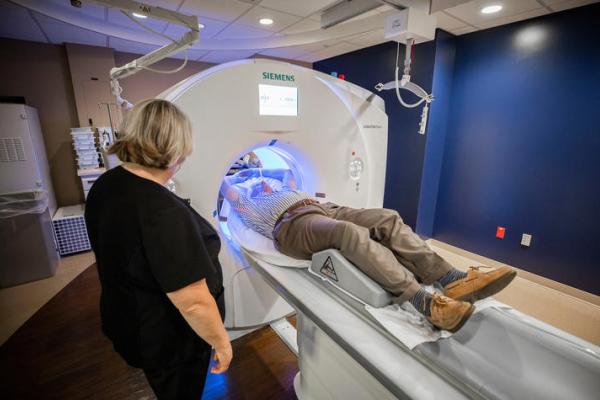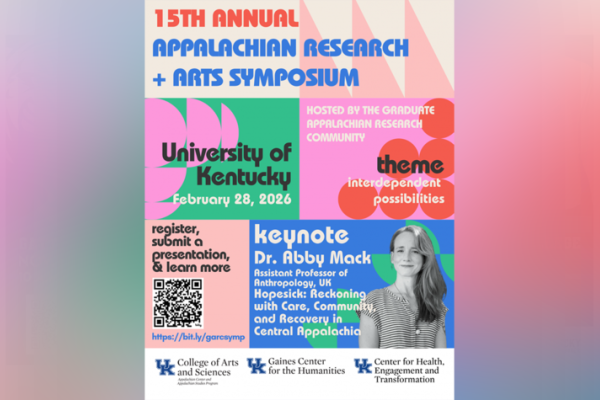Markey receives Merck Foundation grant to advance equitable cancer care in Kentucky

The University of Kentucky Markey Cancer Center received a grant through the Alliance for Equity in Cancer Care (the Alliance), an initiative funded by the Merck Foundation (the Foundation). The Alliance is designed to make cancer care more equitable in the U.S. by helping patients who live in underserved communities receive timely access to high-quality, culturally responsive care.
Nearly 40% of Americans will be diagnosed with cancer in their lifetime. Members of racial and ethnic minority groups, those living in rural areas, low-income individuals and the uninsured are disproportionately affected by cancer, yet often have limited access to cancer screenings, care and treatment.
Kentucky consistently bears one of the highest cancer burdens in the nation — ranking first overall in new cancer cases and deaths — with more than 30,000 new cases and over 10,100 deaths each year. In addition, the Commonwealth has significant cancer-related disparities among rural, Appalachian, Black and Hispanic populations.
Alliance program grantees will work to improve the coordination of patient care from diagnosis through survivorship; strengthen patient engagement in treatment decisions and overall patient-provider communication; build community partnerships that address barriers to care related to social determinants of health, and provide essential psychosocial support services.
Through the Alliance, the UK Markey Cancer Center will enhance coordination of care using digital tools to facilitate psychosocial screening, patient navigation, remote patient monitoring, and patient and provider education in collaboration with patient advocates and community partners.
“These efforts will address some of the social determinants of health that result in significant disparities in cancer outcomes in Kentucky,” said the project’s principal investigator Timothy Mullett, M.D., a professor of cardiothoracic surgery and the medical director of the UK Markey Cancer Center Affiliate and Research Networks.
“One of the biggest challenges faced by patients in rural communities is distance to quality cancer care,” Mullett said. “Technology connecting rural patients to the resources and expertise they need is just one strategy that can increase equity and access to cancer care in Kentucky and beyond.”
The Markey project is co-directed by Ming-Yuan Chih, Ph.D., associate professor in the College of Health Sciences, and Pamela Hull, Ph.D., an associate professor in the College of Medicine and Markey Cancer Center’s associate director of Population Science and Community Impact.
“The severity of the need to take action on advancing equity in cancer care cannot be overstated and will not be overlooked,” said Carmen Villar, CEO of the Merck Foundation. “We must move with urgency and work together to provide all people living with cancer access to high-quality care and treatment. The creation of the Alliance is an important step toward ensuring social determinants of health no longer factor into an individual’s ability to receive vital health care.”
In addition to the UK Markey Cancer Center, Alliance program grantees include Boston Medical Center; Case Comprehensive Cancer Center, Case Western Reserve University; Conquer Cancer®, the ASCO Foundation; Mary Bird Perkins Cancer Center; Memorial Sloan Kettering Cancer Center; and RWJBarnabas Health.
The Merck Foundation is also supporting a national program office at Virginia Commonwealth University (VCU) Massey Cancer Center, in partnership with the VCU Center on Health Disparities, which will assist Alliance program grantees in building partnerships with community-based organizations and provide technical assistance to support their programs. The National Program Office will also evaluate the effectiveness of Alliance programs and identify and promote best practices that can enhance the delivery of cancer care in the U.S.
Alliance program grantees will convene regularly with the National Program Office to discuss learnings, share insights and explore tangible actions to support the delivery of equitable cancer care within their local communities and beyond.
More from this series Research Priorities - Cancer
Credits
Elizabeth Chapin (Public Relations & Strategic Communication)


